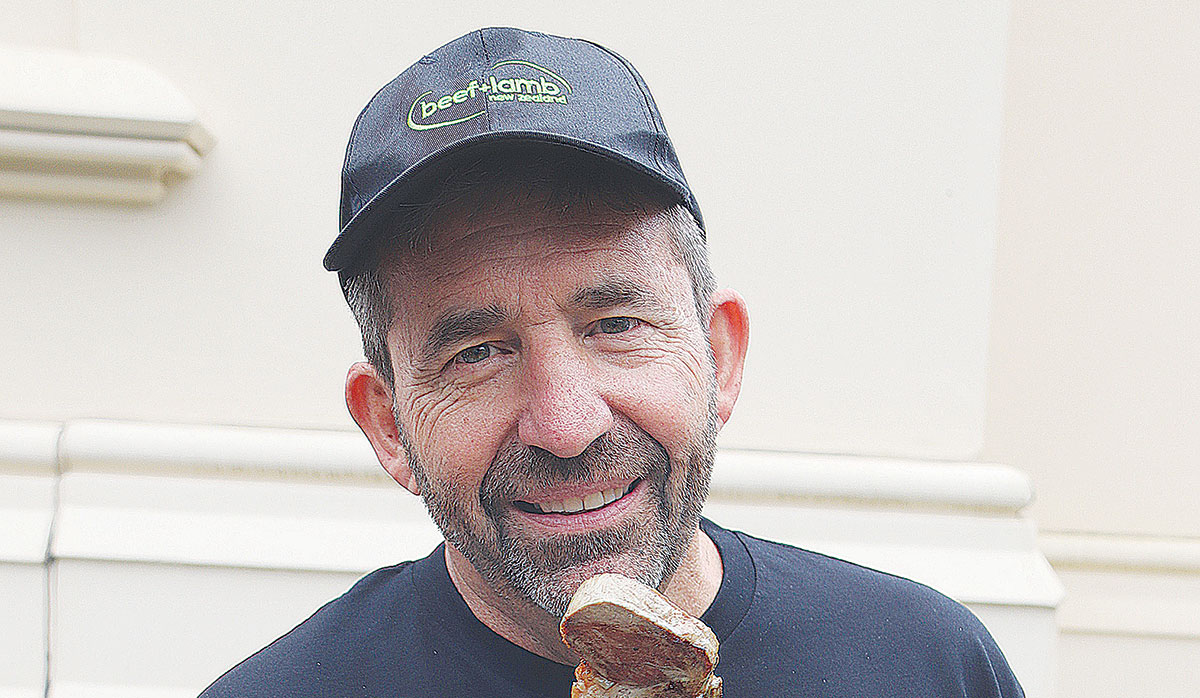National Lamb Day Returns on February 15
National Lamb Day returns this Sunday, 15 February, with Beef + Lamb New Zealand Inc calling on Kiwis to fire up their barbecues and celebrate the people and the product that put New Zealand on the world map.
One of the most important events in the history of the primary sector that happened 143 years ago was celebrated in style at Parliament recently.
It was February the 14th, 1882 that the first shipment of 5,000 frozen sheep and lamb carcasses left Port Chalmers on the ship Dunedin for the three-month voyage to the UK, setting up the huge export trade that we have today.
To mark the anniversary, a special BBQ lunch took place on the Speaker's Lawn behind Parliament buildings. More than 100 guests including politicians, farmers and primary and public sector representatives attended and of course there was one dish - lamb.
This is the second year this event has been staged and was part of an overall series of events held throughout the country to commemorate this historic occasion.
Minister of Agriculture Todd McClay described the event as honouring the legacy of early sector pioneers and acknowledging the hard work and resilience of NZ farmers, processors, and exporters. He says their dedication ensures that NZ's red meat sector remains world leading and ready to grow.
"The sector isn't just crucial to our goal of doubling exports by value in ten years – it also supports 76,000 jobs across New Zealand and is leading the way in sustainable farming,” he says./p>
McClay believes the outlook for lamb is very positive compared with last year when the same event was held at Parliament. He says prices are up and there is more optimism. McClay says the Government has been working hard to get costs down for farmers, to simplify the rules and regulations, and get the regional council off their backs.
Speaking to Rural News at the event, Beef+Lamb NZ chief executive Alan Thomson says as well as celebrating that first shipment of lamb, the event at Parliament is about recognising the hard few years that sheep farmers have been through. He says it’s also about celebrating that eight out of every ten export dollars come from the primary sector.
“This is a celebration of the sector as a whole but specifically calling out our lamb producers, who in my mind, produce the best lamb in the world,” he says
Thomson says lamb is an amazing dish, but it must be cooked properly. He says it’s a premium product which is popular in high end restaurants in Europe and the US.
He says lamb is a product enjoyed the world over and the goal is greater penetration in some key markets.
 |
|---|
|
Beef + Lamb NZ chief executive, Alan Thomson. |
The sheep sector, says Thomson, has done some amazing things over the years, especially in the area of genetics with an annual compounding gain of 2% which has increased productivity. He says another genetic gain has been producing traits in sheep to produce less methane.
“Finally, today we should not forget the contribution that the meat sector makes to the NZ economy. Every day 90,000 people go to work in the wider meat industry, making it the largest export manufacturing sector in the country.”
Meanwhile the chief executive of the Meat Industry Association, Sirma Karapeeva, says National Lamb Day is about where the primary sector has come from and where it is today. She says amazing innovations have taken place since the first lambs left the Totara Estate near Oamaru in 1882.
“This day is an opportunity to remind people who we are, where we have come from and a future that looks great,” she says.
Global trade has been thrown into another bout of uncertainty following the overnight ruling by US Supreme Court, striking down President Donald Trump's decision to impose additional tariffs on trading partners.
Controls on the movement of fruit and vegetables in the Auckland suburb of Mt Roskill have been lifted.
Fonterra farmer shareholders and unit holders are in line for another payment in April.
Farmers are being encouraged to take a closer look at the refrigerants running inside their on-farm systems, as international and domestic pressure continues to build on high global warming potential (GWP) 400-series refrigerants.
As expected, Fonterra has lifted its 2025-26 forecast farmgate milk price mid-point to $9.50/kgMS.
Bovonic says a return on investment study has found its automated mastitis detection technology, QuadSense, is delivering financial, labour, and animal-health benefits on New Zealand dairy farms worth an estimated $29,547 per season.

OPINION: Here w go: the election date is set for November 7 and the politicians are out of the gate…
OPINION: ECan data was released a few days ago showing Canterbury farmers have made “giant strides on environmental performance”.